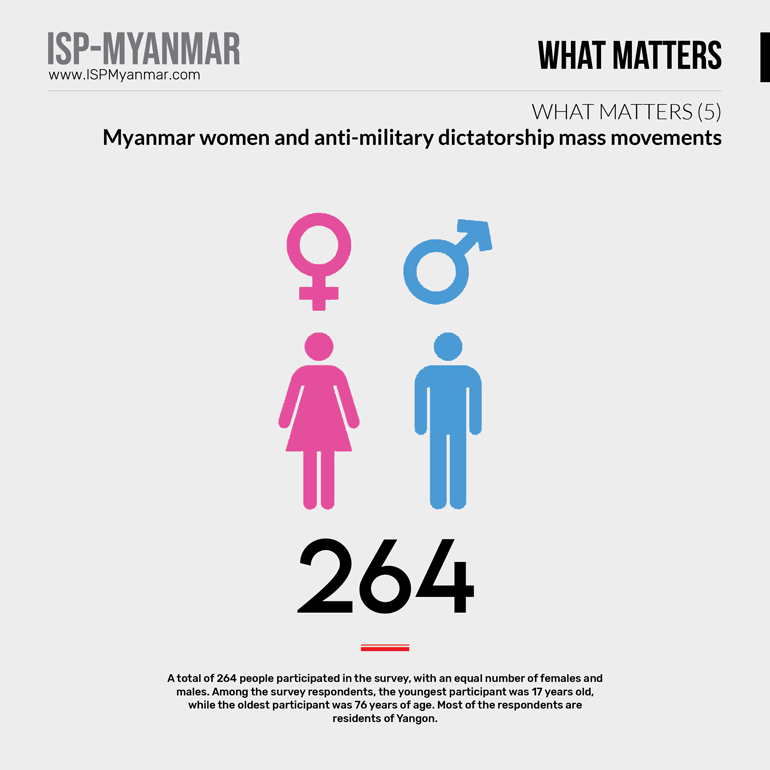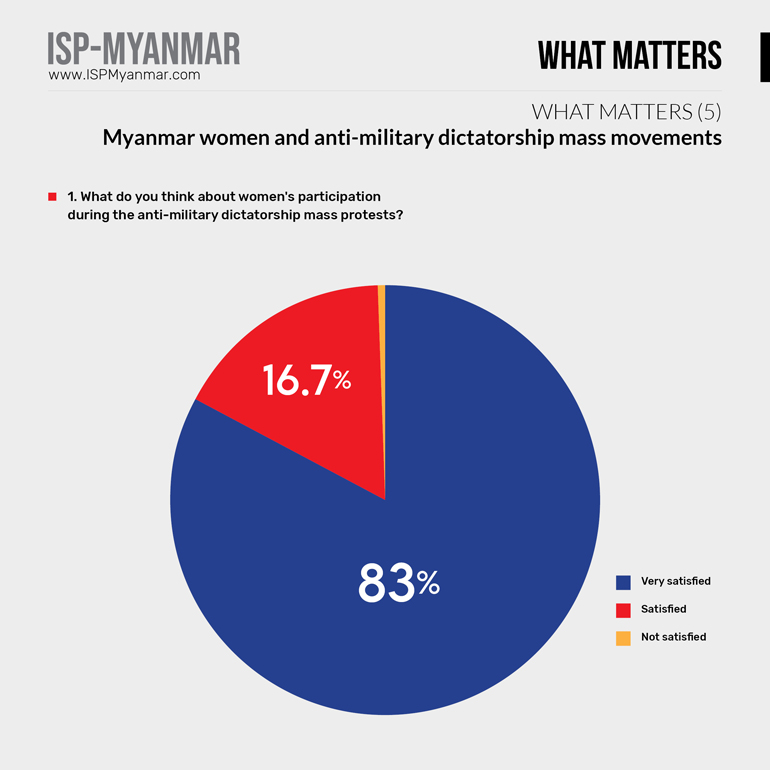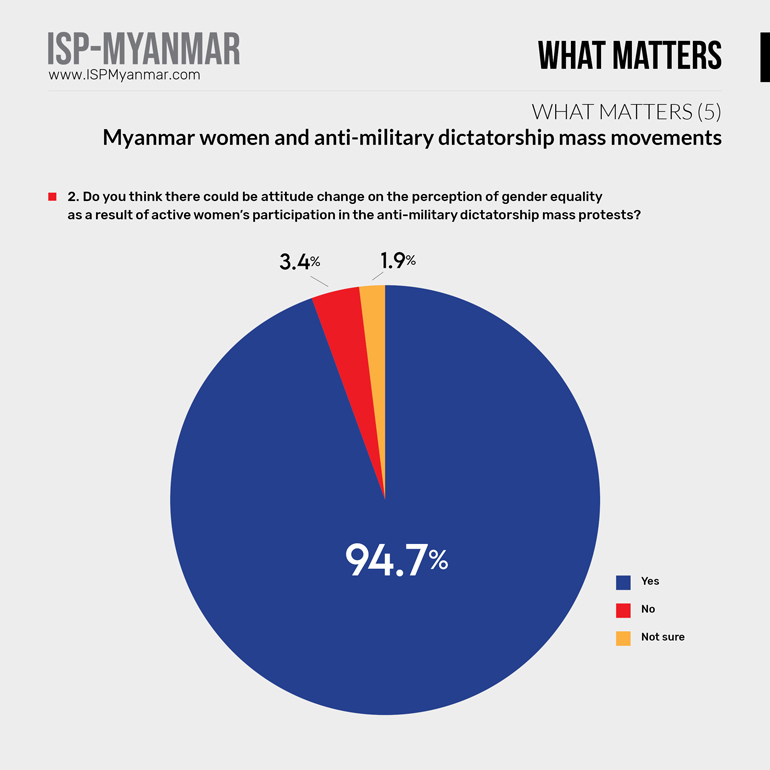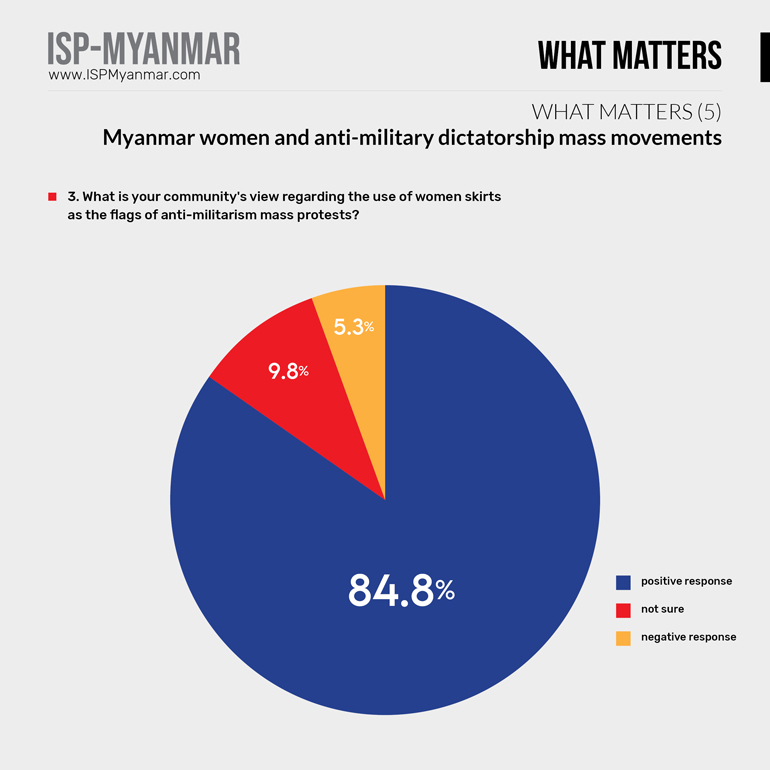(The original Burmese version was published on the ISP-Myanmar Facebook page on March 8, 2021.)
In honor of International Women’s Day, which falls on March 8, the Institute for Strategy and Policy – Myanmar (ISP) conducted a survey using randomized participant selection methods.
According to the respondents, women’s participation in the protest movement that emerged after the coup on February 1, 2021 is robust. Their participation could lead to attitudinal and behavioral changes about gender equality in Myanmar. Besides, the survey also found widespread acceptance of the unprecedented using of women’s skirts as flags as a form of anti- protests.
The survey asked three questions:
1) What do you think about women’s participation during the anti-military dictatorship mass protests?
2) Do you think there could be attitude change on the perception of gender equality as a result of active women’s participation in the anti-military dictatorship mass protests?
3) What is your community’s view regarding the use of women skirts as the flags of anti-military dictatorship mass protests?
A total of 264 people participated in the survey, with an equal number of females and males.
Among the survey respondents, the youngest participant was 17 years old, while the oldest participant was 76 years of age. Most of the respondents are residents of Yangon.




◉ What Matters ISP-Myanmar covers a section entitled “What Matters” that could benefit the current anti-coup mass movements through a series of research work. This section aims to introduce issues and data that should be addressed in a short, easy-to-read manner and accessible to everyone based on research findings. The introduced facts, cases, and data are intended to be a thought-provoking stimulus, but not as a definite view. The purpose is to make the data presented more accurate and complete. In this series, ISP would try to answer three questions in general: 1) what is the issue of concern? 2) why does it matter? 3) is it relevant for Myanmar? Addressing these questions does not involve an exhaustive examination but covers the relevant elements and claims. Thus, each issue of “What Matters” provides a list of suggested readings and references for further study. In the current situation, this section will focus on research findings related to three research topics. These are: 1) research findings related to coup d’état 2) research findings on mass movements 3) research findings on how the international community (especially powerful foreign countries that can provide significant support ) intervened in military coups and the authoritarian states. The research will be based on comparative studies. Research data collected by local partner organizations will also be requested and respectfully presented in various forms from time to time.
